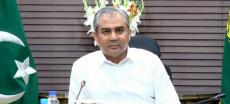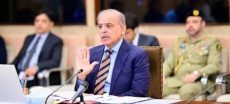[vc_row][vc_column][vc_column_text dp_text_size=”size-4″]Ali Wazir, a former Member of the National Assembly (MNA), and human rights lawyer Imaan Mazari have been placed under remand by an Islamabad court due to allegations of unlawful gathering, resistance, and interference in state affairs.
This action followed their arrest by Islamabad police, which occurred two days subsequent to their involvement in a protest organized by the Pashtun Tahaffuz Movement (PTM). Their detention is part of an ongoing investigation, with the initial First Information Report (FIR) outlining charges related to organizing a sit-in, opposing authorities, and disrupting state affairs.
The FIR report stated that around 700 to 800 individuals were present at the event, some of whom were equipped with sticks and even weapons. The protestors allegedly attempted to defy authorities by marching towards the capital and subsequently blocked the main highway, GT Road. Altercations with security personnel ensued, leading to an attack on a government vehicle and the forcible seizure of an anti-riot kit from an officer.
During court proceedings, Ali Wazir and Imaan Mazari were granted varying lengths of remand: Ali Wazir was given a two-day physical remand, while Imaan Mazari was remanded for one day. Notably, an additional FIR involving charges of sedition and terrorism against both individuals was also presented in court. Imaan Mazari will be held in the women’s police station by the Counter Terrorism Department (CTD) until the next hearing.
Also Read: Police fired on protesters and used excessive force: Human Rights
These arrests have sparked significant controversy, with Imaan Mazari’s mother, Dr. Shireen Mazari, a former human rights minister, denouncing the arrests as an “abduction” and “state fascism.” She alleged that plainclothes individuals forcibly entered their residence and apprehended her daughter without proper warrants or legal procedures. The events have drawn attention to concerns about due process and human rights in the region.[/vc_column_text][/vc_column][/vc_row]











